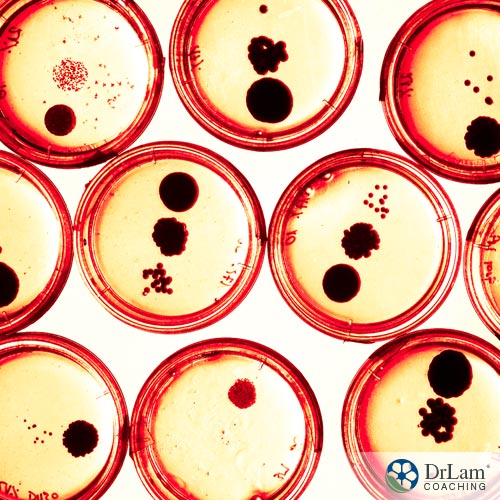 Did you know that there is an entire cluster of living things within you, which play a major role in the state of your physical and mental well-being? As a matter of fact, your gut is full of an entire colony, with more than 100 trillion tiny, yet mighty, bacteria. In simple words, your life literally depends on them. If you spend years taking rounds of antibiotics for every ill and ache, eat fast-food four days a week, and snack on heavily-processed junk all day, you are destroying the good bacteria within your microbiome. With widespread unhealthy diets, never-ending external stress factors, and habits such as pulling all-nighters while consuming energy drinks, many have been led into developing of a pathogenic autoimmune system, which is now being directly linked to the progression of various health conditions.
Did you know that there is an entire cluster of living things within you, which play a major role in the state of your physical and mental well-being? As a matter of fact, your gut is full of an entire colony, with more than 100 trillion tiny, yet mighty, bacteria. In simple words, your life literally depends on them. If you spend years taking rounds of antibiotics for every ill and ache, eat fast-food four days a week, and snack on heavily-processed junk all day, you are destroying the good bacteria within your microbiome. With widespread unhealthy diets, never-ending external stress factors, and habits such as pulling all-nighters while consuming energy drinks, many have been led into developing of a pathogenic autoimmune system, which is now being directly linked to the progression of various health conditions.
In the earlier stages, your immune system naturally works to defend against pathogens, harmful bacteria, microorganisms, and viruses. With time, when there is dysbiosis in your gut flora, when your immune system becomes weakened, and with countless other factors, your body may begin to attack itself. It may be a toxin, such as E. coli or salmonella, or physiological stress or anxiety, that ends up building the foundation for health problems.
The structure of your body systems is a delicate balance, with every organ depending on the other, and every system functioning in harmony. Subjecting your body to factors, such as stress, trauma, fear, or a polluted environment, can cause disruption to your cells and hormones. Genetics, environmental factors, toxins, or even unhealthy emotions could cause your body to develop damaging health conditions.
To reduce these conditions, you must observe every area of your life - physical, mental, emotional, and environmental - and aim to reduce anything that is causing you problems or leaving you physically unwell. Your body is valuable; your entire life depends on it. The systematic structure of your mind and body depends on a state of harmony, and it requires maintenance, care, and delicacy in order to continue functioning properly.
 With predominately more and more reliance on fast-food, less home cooked meals, excessive caffeine, little sleep, and over the top stress, there is a rise in more and more sickness. About 15 percent of the population experiences IBS, or irritable bowel syndrome. Small intestinal bacterial overgrowth, also readily known as SIBO, is an underlying cause of many other health conditions you may be experiencing. If your gut flora is in bad condition, there could be three major categories playing a role in developing an autoimmune issue: gut dysbiosis, inflammation, or barrier failure.
With predominately more and more reliance on fast-food, less home cooked meals, excessive caffeine, little sleep, and over the top stress, there is a rise in more and more sickness. About 15 percent of the population experiences IBS, or irritable bowel syndrome. Small intestinal bacterial overgrowth, also readily known as SIBO, is an underlying cause of many other health conditions you may be experiencing. If your gut flora is in bad condition, there could be three major categories playing a role in developing an autoimmune issue: gut dysbiosis, inflammation, or barrier failure.
These three factors together can contribute to the development of autoimmunity, a pathogenic autoimmune system, and cause many other health conditions.
Dr. Martin Blaser, in a journal article titled, “The Theory of Disappearing Microbiota and the Epidemics of Chronic Disease,” argues that microbiota disappearing is a cause of many other chronic health conditions that develop, such as cancer, cardiovascular conditions, irritable bowel syndrome, and gastrointestinal health conditions. He states that your microbiota play a crucial role in the cause of pathogenic autoimmune system conditions.
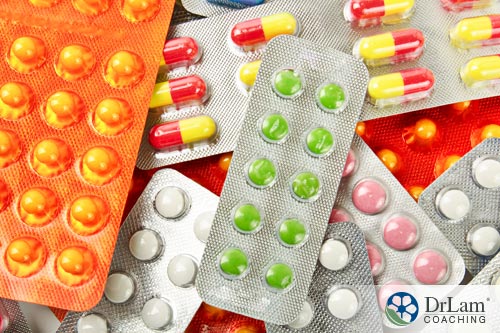 There are countless factors in your early life that could impact the condition of your microbiota. These include whether you consumed breast milk, the method of delivery, contact with pets at an early age, the use of antibiotics or vaccines, and history of infections. These factors all contribute to the health of your skin, lung, gut, and nasopharynx microbiome, which could pave the path for a healthy life or health problems down the line.
There are countless factors in your early life that could impact the condition of your microbiota. These include whether you consumed breast milk, the method of delivery, contact with pets at an early age, the use of antibiotics or vaccines, and history of infections. These factors all contribute to the health of your skin, lung, gut, and nasopharynx microbiome, which could pave the path for a healthy life or health problems down the line.
In the book, Clean Gut, Dr. Alejandro Junger argues that the power of gut bacteria to influence your health is profound. He gives evidence that the condition of your gut could lead to a life of good health, both physically and mentally, or be the groundwork for many devastating health conditions.
Dysbiosis in your gut flora, or an overgrowth of bad bacteria, could be the root cause of candida or yeast overgrowth, food intolerance, allergies, various gastrointestinal conditions, and inflammation. Just as your body has a natural stress response mechanism, known as “fight-or-flight,” so too does your immune system. However, your immune system doesn’t respond by causing your heart rate to increase or adrenal glands to pump hormones. It responds in one way: by creating inflammation.
Although it may sound harmful, not all inflammation is bad, as is the case with stress. Local inflammation is a sign of an immune system hard at work, healing a scrape or developing a fever to overheat and kill off infectious bacteria. Nevertheless, the situation becomes dangerous when the inflammation is systemic and chronic. This type of inflammation is all over your body and is believed to be the root cause of heart conditions, diabetes, pathogenic autoimmune system conditions, and even cancer.
Before this systemic inflammation develops, however, is the gut dysfunction that acts as the cause of these various health conditions.
Having an overgrowth of bacteria, usually estimated to be greater than 105 CFU/ml, could lead to simple symptoms such as bloating, indigestion, or gas, or to more serious conditions like malabsorption of nutrients, altered bowel function, gut immune system issues, and the loss of brush border enzymes. An increase of good bacteria in your gut flora could keep this overgrowth in check and prevent intestinal injury, irritable bowel syndrome, and leaky gut from developing.
The gut microbiome population exceeds more than 100 trillion organisms and is made up of between 50-100 various bacterial species.
Small intestinal bacterial overgrowth (SIBO) may be the underlying cause of irritable bowel syndrome, pathogenic autoimmune system conditions, or other gastrointestinal conditions.
Your body has five natural defense mechanisms to protect you from small intestinal bacterial overgrowth.
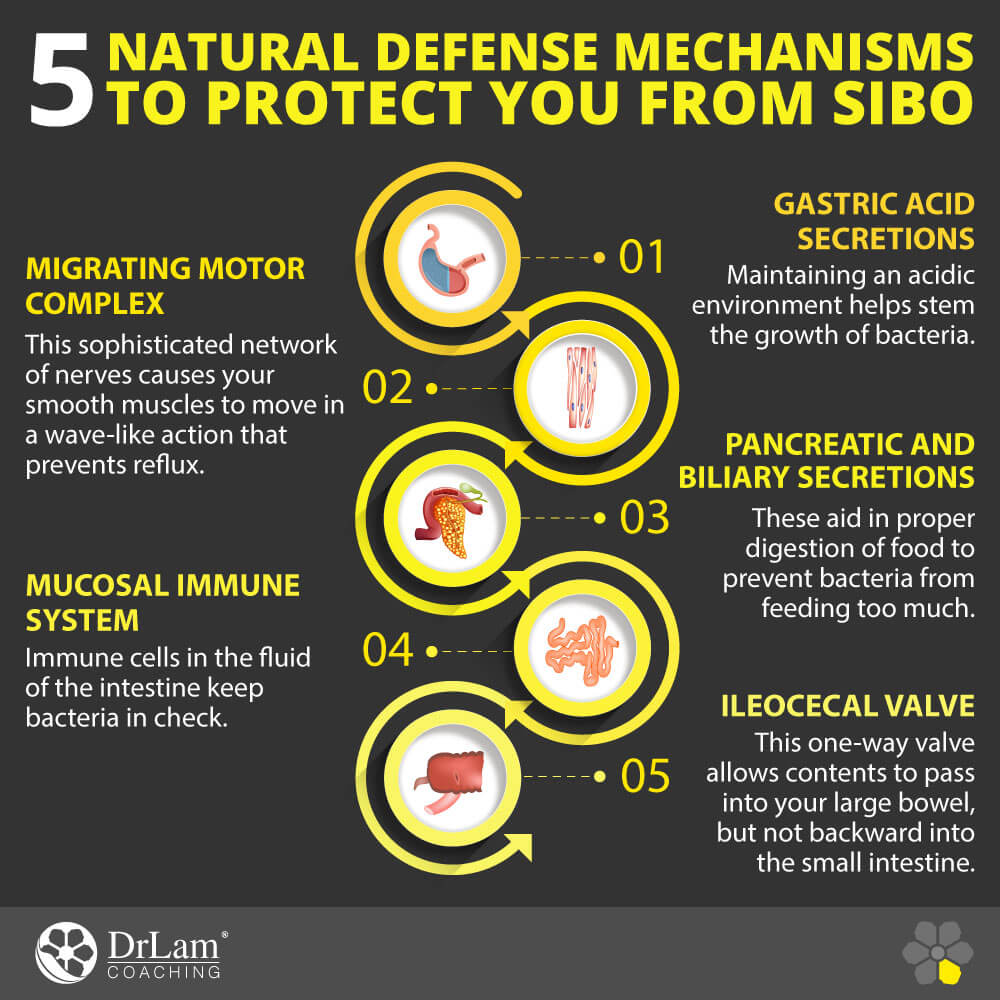
These mechanisms prevent bacteria from the colon from migrating back up into your intestine, causing an overgrowth of the wrong bacteria in the wrong place. If something goes wrong with one of these systems, however, it could lead to uncomfortable digestion, nutrient absorption issues, inflammation, autoimmune disorders, allergies, and more.
Many researchers have found an overlap between irritable bowel syndrome (IBS) and small intestinal bacterial overgrowth (SIBO). The American Journal of Medicine has estimated there is roughly 60 to 80 percent overlap between the symptoms of the two conditions.
SIBO has been defined as a specific state of the microbiota in your small intestine. In contrast, IBS has been defined as a chronic set of symptoms affecting the large intestine which can be influenced by psychological factors. However, it is possible that the transmission of micro bacteria plays a major role in whether you develop IBS. Factors such as your method of birth delivery, environment, medication history, and diet could play a role. Physical disruptions in your body can impact bacterial growth.
It’s very difficult to recognize irritable bowel syndrome, and the cause may be environmental or even genetic. Your exposure to toxins, medications, or antibiotics in the past could all play a role. In addition, the stress you experience in life, emotional factors, and lack of social support could also be involved.
Not just an overgrowth of bacteria, but toxins from certain bacteria could also be causing gut trouble. On kind of protein produced by bacteria, CDT, or cytolethal distending toxin, is so powerful that it can cause disruption to cell reproduction and cell death. Moreover, it causes instability in your colon cells and is quite toxic. It has three parts, CDTa, CDTb, and CDTc, with the b component being the active and truly detrimental portion.
This holotoxin attacks your cells and disables the cytoskeleton network your intestine depends on for proper function and communication. The CDTb attacks intermediate junctions and vinculin. Vinculin is the anchor of the cytoskeleton network. Vinculin comes to the surface of your epithelial cells, only to release additional CDT toxin. CDTb ends up directly damaging your DNA, disrupts your cell cycle, and leads to intestinal neoplasm development down the road if this state progresses. Communication and coordinating function are disrupted, and the immune system is attacked by several invaders.
This means the proteins that are the building blocks of your cells are flowing around. The intestine is not only fighting the toxin, CDT, itself, but also the protein antigens. Now the body falls into autoimmunity as it creates antibodies in order to attack the harmful invaders. It results in a pathogenic autoimmune system, in which your body’s goal is to protect itself against a harmful toxin but may attack itself in the process. Now other cells, which are not injected with the toxin, could have the same mechanism of response as well. Autoimmunity can result.
Cytolethal distending toxin is not alone in being damaging to your internal organs. Other bacteria with similar toxins and functions, such as Shigella, salmonella, or E. coli have similar capabilities for disrupting the cytoskeleton network in your small intestine and could be a cause of a pathogenic autoimmune system condition, such as SIBO or IBS.
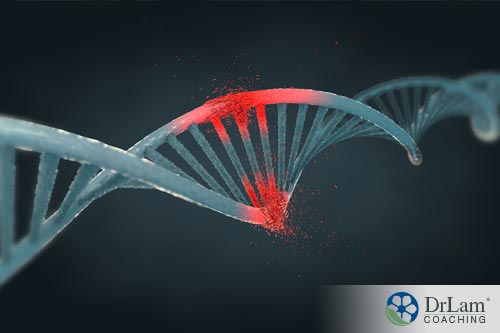 The CDT toxin causes direct damage to your DNA or cytoskeleton. The homologs toxin has its own DNase activity, making it very powerful. A second method of it causing harm is through affecting your adherens junctions, leading to inflammation of the gut, barrier failure, or immune dysfunction. Your tight junctions, which are gatekeepers of the epithelial cells, allow macromolecules in the gate, and disruption of this process leads to conditions such as leaky gut. Vinculin is the most important component, and when it is disrupted, your cells are unable to continue functioning as a coordinated unit. When your adherens junction is damaged by CDT, it’s enough to cause the entire network to fall apart.
The CDT toxin causes direct damage to your DNA or cytoskeleton. The homologs toxin has its own DNase activity, making it very powerful. A second method of it causing harm is through affecting your adherens junctions, leading to inflammation of the gut, barrier failure, or immune dysfunction. Your tight junctions, which are gatekeepers of the epithelial cells, allow macromolecules in the gate, and disruption of this process leads to conditions such as leaky gut. Vinculin is the most important component, and when it is disrupted, your cells are unable to continue functioning as a coordinated unit. When your adherens junction is damaged by CDT, it’s enough to cause the entire network to fall apart.
Chronic stress can do a surprising and unexpected level of damage to your body over time, eventually leading to serious conditions like Adrenal Fatigue Syndrome (AFS). Many people experience the symptoms, but if you don’t work on taking care of the core stress and reducing the emotional, physiological, or physical stressors in your life, symptoms will often only get worse. Some symptoms appear to be caused by something else, such as weight gain, disrupted sleep, muscle aches, sluggish thinking, or back pain. Adrenal fatigue can lead to imbalances in the body that can cause or aggravate autoimmunity.
Stress causes more than just feeling overwhelmed at work, or feeling tense as you study for exams. AFS requires very careful management, along with patience and the consultation of an experienced doctor. AFS is a serious condition that results when chronic stress calls for your adrenals to produce too much cortisol. The adrenals are no longer able to keep up, and cortisol (the stress hormone) levels drop in your body even though the stress continues. Other systems, based on the NeuroEndoMetabolic (NEM) Stress Response model, kick in to help your body handle the stress, but often those systems become dysregulated as well due to the heavy load required of them. Gut issues and inflammation are common, and those can feed into the causes of a pathogenic autoimmune system.
 Symptoms of AFS include chronic fatigue and lethargy, the inability to focus, brain fog, headaches, or unexplained hair loss. Sufferers often find it difficult to complete even ordinary tasks, yet alone tasks under pressure. However, it is in your hands to make changes and heal your body.
Symptoms of AFS include chronic fatigue and lethargy, the inability to focus, brain fog, headaches, or unexplained hair loss. Sufferers often find it difficult to complete even ordinary tasks, yet alone tasks under pressure. However, it is in your hands to make changes and heal your body.
Consuming a healthy diet of whole fruits and vegetables not only strengthens your immune system, but protects your body against harmful toxins, such as CDT, which can lead to IBS or a pathogenic autoimmune system. By making gradual changes to unhealthy habits and by improving your diet, you could begin to improve AFS, digestive health, and quality of life as well.
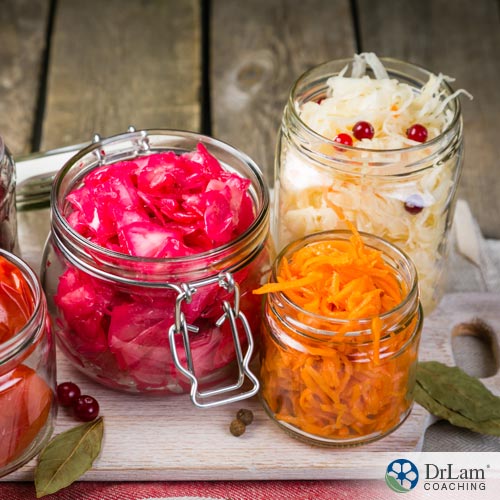 Pathogenic autoimmune system conditions mean that parts of your body are being attacked by your body’s very own immune system. The body hosts an entire colony of microorganisms to protect it against viruses, bacteria, and other harmful microorganism invaders. But, what happens when your very source of protection is harmed?
Pathogenic autoimmune system conditions mean that parts of your body are being attacked by your body’s very own immune system. The body hosts an entire colony of microorganisms to protect it against viruses, bacteria, and other harmful microorganism invaders. But, what happens when your very source of protection is harmed?
The immune system becomes confused about who is the invader and who is a healthy part of your body or an innocuous bit of food. Conditions such as inflammation, joint pain, cancer, or heart conditions can result.
The confusion of your immune system, which leads it to a state of attacking your body, begins with the health of your gut. By repairing your gut, you can help stop the process of your immune system misidentifying and attacking healthy parts of your body and reduce the overactive immune response. Instead of trying to bandage your symptoms, zoom in on your gut colony.
Certain factors could be to blame for destroying the good bacteria in your gut, leading to dysbiosis, and subsequently inflammation or pathogenic autoimmune system conditions. Sleep, chlorinated water, stress, chemicals in food, and polluted air could all impact your gut bacteria as well.
Taking a high-quality probiotic could be a first step. Alongside this, increase your intake of fermented foods, such as sauerkraut, yogurt, kefir, or kefir grains. These foods are high in natural probiotics and improve the state of your gut flora, ease digestion, and aid in repairing your gut lining.
You cannot consume a diet of fast-food, processed food, and junk snacks and expect to make it up by taking multivitamins. You cannot live in a highly stressful environment, physically, emotionally, or mentally, and expect your health to stay at its peak. It’s simply contradictory to a healthy lifestyle.
Instead, aim to clean up your diet, and eliminate fast-food completely. Fast-food is the ticket to a variety of health conditions, including heart conditions, diabetes, high cholesterol, cancer, cognitive decline, and obesity.
Fast food, along with an overload of antibiotics can also lead to dysbiosis and a pathogenic autoimmune system. Many chronic health conditions, such as rheumatoid arthritis, hypertension, coronary heart conditions, and cancer, are now being linked to emotional distress, inflammation, and the bacterial overgrowth that leads to autoimmunity with time.
Your body depends on you to feed it well, and although you may not see the direct effects now, they are there. Health conditions do not develop overnight, but consistently bad habits take a toll on your health. Eating a diet that protects your gut health can make a big difference.
Instead, fill your breakfast, lunch, and dinner plates with colorful fruits and vegetables bursting with antioxidants, phytonutrients, dietary fiber, and a myriad of vitamins and minerals. If your salads are mostly fluffed up with iceberg lettuce, try adding kale, turnip greens, mustard greens, Swiss chard, spinach, arugula, collard greens, or dandelion. Consuming these superfood leafy greens, beta-carotene packed orange fruits and vegetables, or antioxidant-filled red-pigment foods can help protect you against a pathogenic autoimmune system down the line.
Instead of reaching for a bag of chips or cookies, prepare fresh-cut vegetables and dip them in hummus or almond butter as a snack. Healthy eating helps make your digestion better, gives you more energy, and boosts your mood.
Consuming a sufficient amount of vitamin C, vitamin E, and beta-carotene, are all tremendously beneficial in boosting your immune system’s health. Switch to sweet potatoes instead of white potatoes for a boost of vitamins, fiber, and natural sweetness. Add oranges, tangerines, grapefruits, or lime to your morning smoothies for a punch of vitamin C, fiber, and a unique taste.
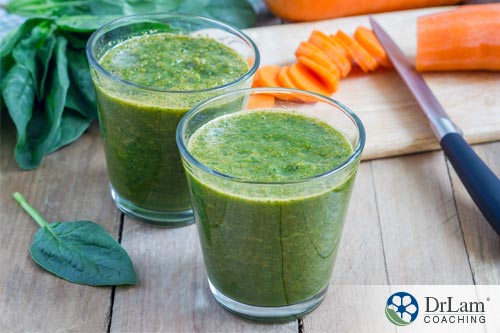 If you don’t have a juicer at home, it’s definitely a great investment for your health. Juice up several beets, carrots, fresh turmeric, fresh ginger, and even parsley to cleanse your body of toxins, protect yourself against a pathogenic autoimmune system, or even prevent the possible development of cancer.
If you don’t have a juicer at home, it’s definitely a great investment for your health. Juice up several beets, carrots, fresh turmeric, fresh ginger, and even parsley to cleanse your body of toxins, protect yourself against a pathogenic autoimmune system, or even prevent the possible development of cancer.
As crucial as it is that you feed your body healthy foods, it’s just as important, if not more important, that you feed your mind healthy thoughts. You become your thoughts and shape your reality with your perspective. Your thought process has an effect on your gut health as well. Have an attitude of gratitude and appreciate nature’s palette, for the colors found in these fresh fruits and vegetables are extremely beneficial for your body.
It’s essential to note that prior to starting any new diet or supplements, you consult your healthcare practitioner for advice, especially if you have a health condition like autoimmunity or AFS. Some vegetables and fruits can have interactions with certain medications, such as turmeric, ginger, or pineapple. Consuming these foods in large amounts while taking certain medications could have adverse side effects.
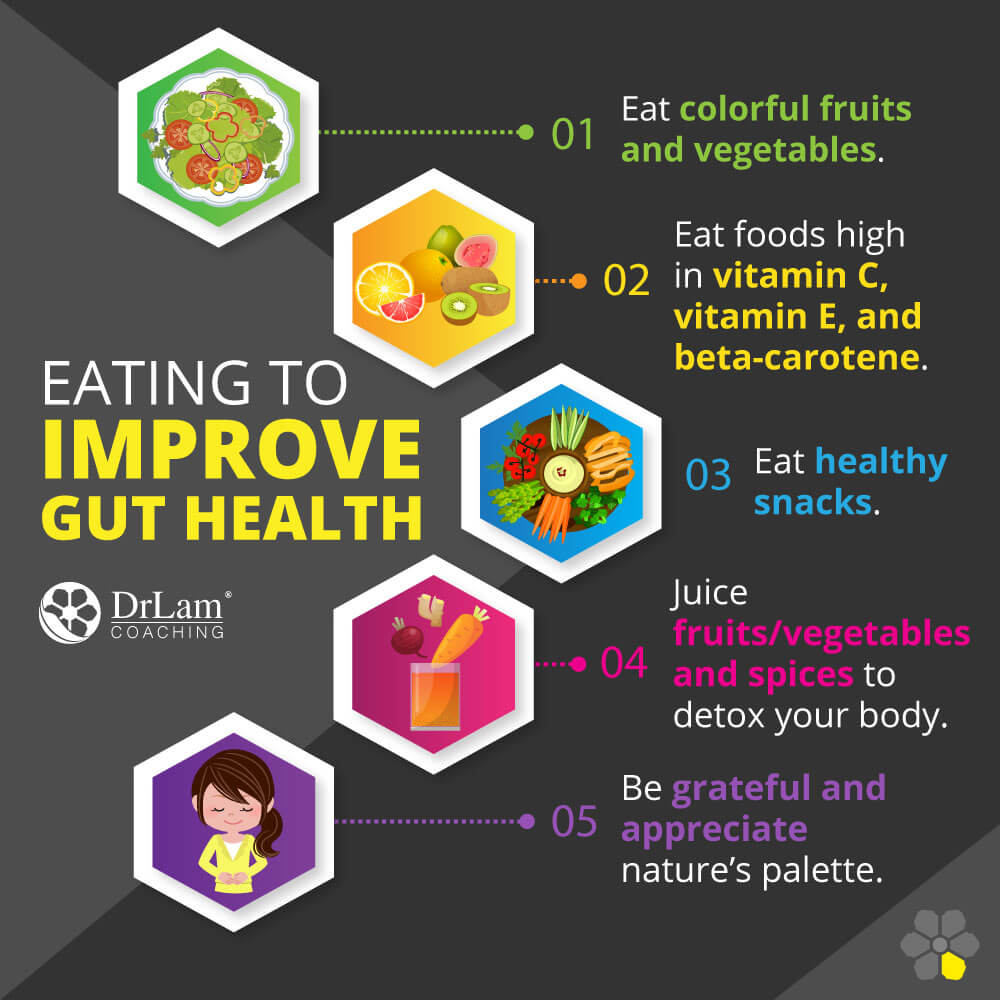
Exercise could do your body wonders.However, you need to consult your healthcare practitioner prior to starting any new exercise regimen, as certain conditions like AFS can make it hard for your body to handle exercise. Some workouts could overload your body, and the exercise could bring about weakness or an adrenal crash. Depending on the stage of AFS you are in, it’s best to start with a gentle exercise routine, such as adrenal breathing or yoga. Build your way up gradually.
However, a suitable exercise routine could act as a stepping stone to recovery, while strengthening your immune system. Exercise is linked to enhanced mood, more energy, weight loss, improved cardiovascular health, and balanced hormones.
There is a direct correlation between exercise and your mood. The next time you feel overwhelmed, down, or hurt, take a break and try some physical activity. Observe as your mood lightens, as the dopamine in your brain is released, stress is reduced, and you build strength and stamina. This decreases your risk of developing a pathogenic autoimmune system.
Take a morning walk, or do breathing and yoga stretches in nature, if the weather permits. Find a way to enjoy the process of exercise, by taking a fun class at a local gym, doing it with a friend, or getting out on a trail or to the beach. It will do your health wonders.
You may not be aware of it, but you may be engaging in a daily habit or two that are detrimental to your health. These tips will hopefully help you locate areas to improve. Try your best to implement these habits in your life. They might make a huge difference in your health.
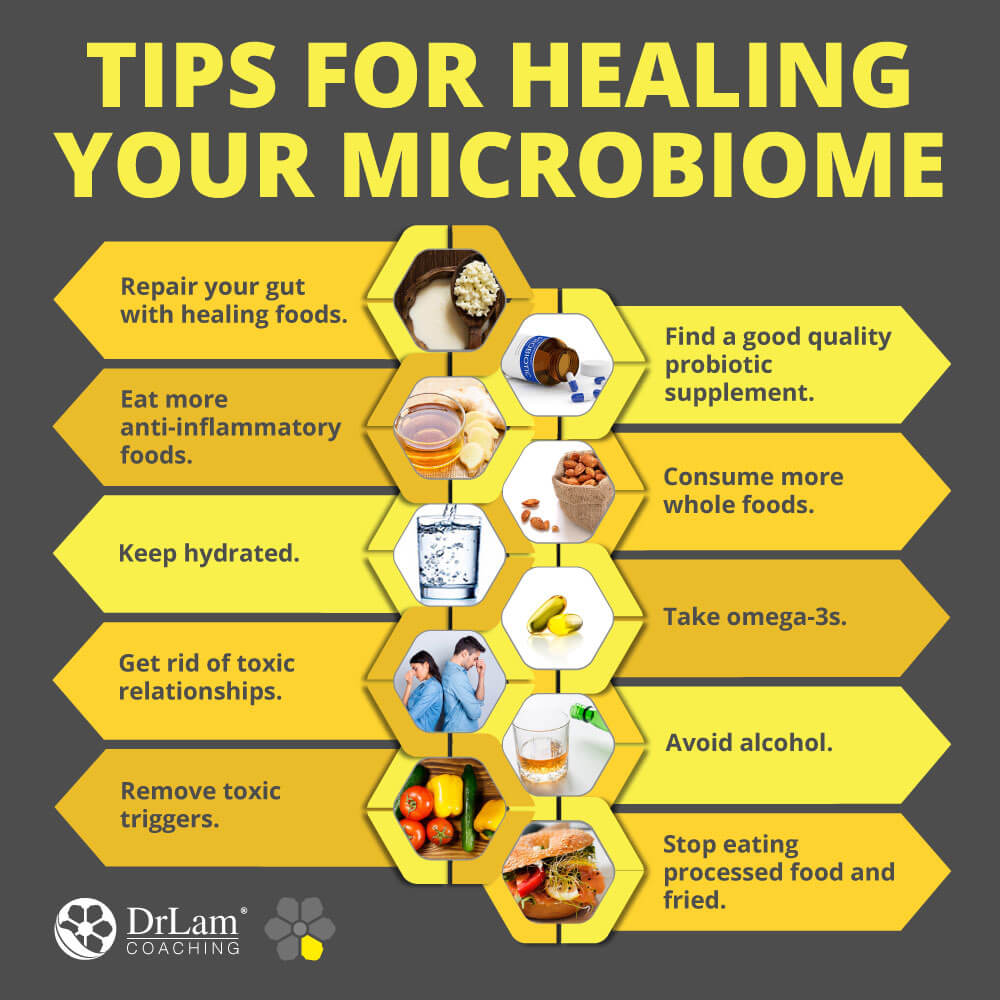
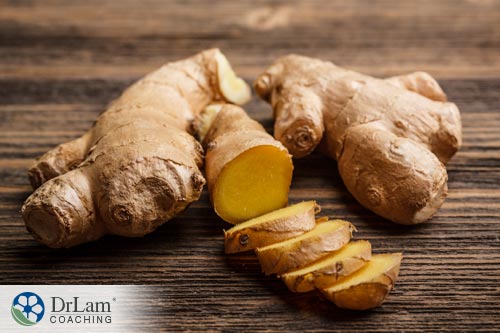


A pathogenic autoimmune system is in many cases the result of a gut gone wrong, and while you may not be able to completely resolve the condition, you can do all that is in your power to support your health, encourage a healthy gut, and reduce autoimmune outbreaks in the future. Some of these tips may be just what your body needs to heal.
As a matter of fact, the state of your gut microbiome could have a big influence on the state of your health and can prevent pathogenic autoimmune system conditions from developing. While these gut bacteria are tiny, they are mighty in importance to your well-being.